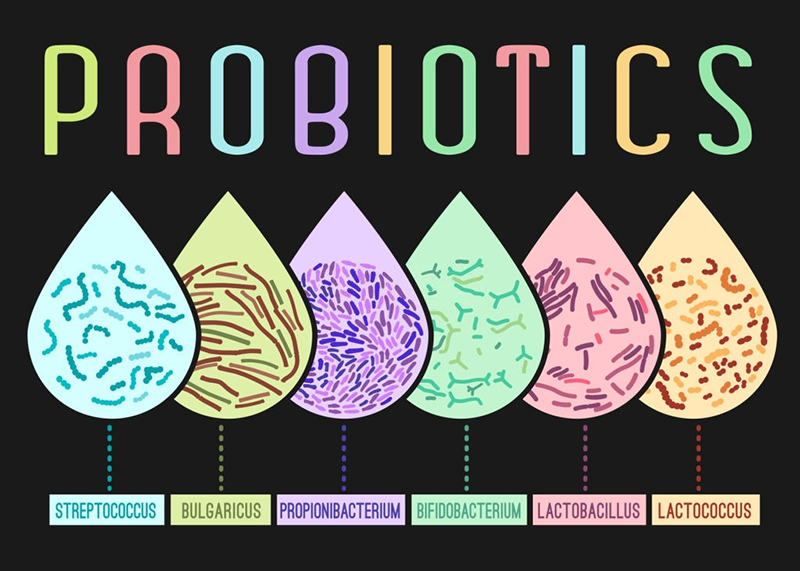Probiotics, the tiny organisms that live in our guts, are often called the “good bacteria.” These beneficial bacteria have been shown to have a positive impact on our overall health and well-being. In recent years, there has been an explosion of interest in probiotics and their potential benefits.
What are probiotics?
Probiotics are live microorganisms that are beneficial for our health. They can be found in many foods, such as fermented cabbage, yogurt, kefir, and kombucha. They can also be taken in supplement form, typically in a capsule or powder.
Probiotics are often referred to as “good bacteria” because they help to maintain a healthy balance of microorganisms in our gut. When this balance is disrupted, it can lead to a variety of health problems, including digestive issues, allergies, and even mental health disorders.
The benefits of probiotics
Research has shown that probiotics can have a number of benefits for our health. Some of the most well documented benefits include:
- Improved digestive health: Probiotics can help to improve digestion and reduce symptoms of digestive disorders such as irritable bowel syndrome (IBS) and inflammatory bowel disease (IBD). They do this by supporting the growth of beneficial bacteria in the gut and reducing inflammation.
- Boosted immunity: Probiotics have been shown to boost the immune system by stimulating the production of antibodies and other immune cells. This can help to reduce the risk of infections, such as colds and flu.
- Reduced inflammation: Inflammation is a key contributor to many chronic diseases, including heart disease, diabetes, and cancer. Probiotics can help to reduce inflammation by promoting the growth of anti-inflammatory bacteria.
- Improved mental health: There is a growing body of research showing that the gut-brain axis plays an important role in mental health. Probiotics have been shown to have a positive impact on mental health by reducing symptoms of depression and anxiety.
Foods that contain probiotics
Many different types of foods contain probiotics. Some common sources include:
- Yogurt: Yogurt is one of the most well-known sources of probiotics. Look for brands that contain live and active cultures.
- Kefir: Kefir is a fermented drink that contains a variety of different probiotics. It is similar to yogurt, but has a thinner consistency.
- Kombucha: Kombucha is a fermented tea that is becoming increasingly popular. It contains a variety of different probiotic strains and has a slightly tangy taste.
- Fermented vegetables: Fermented vegetables, such as sauerkraut and kimchi, are also good sources of probiotics.
Choosing a probiotic supplement
If you don’t eat many probiotic-rich foods, or if you are taking antibiotics (which can kill off beneficial bacteria in the gut), you may want to consider taking a probiotic supplement.
There are many different types of probiotic supplements available, so it can be difficult to know which one to choose. Here are some factors to consider:
- Number of strains: Look for a supplement that contains multiple strains of probiotics, rather than just one or two.
- Colony forming units (CFU): CFU refers to the number of viable bacteria in a supplement. Look for a supplement that contains at least 10 billion CFUs.
- Type of bacteria: Different types of bacteria have different benefits. Look for a supplement that contains a variety of different strains.
- Reputable brand: Choose a reputable brand that has been tested for safety and efficacy.
Conclusion
Probiotics are a powerful tool for improving our overall health and well-being. Whether you get them from food or supplements, these “good bacteria” can help to improve digestion, boost immunity, reduce inflammation, and even improve mental health.
If you’re considering adding probiotics to your diet, be sure to choose a reputable supplement or look for probiotic-rich foods. With regular use, you may be able to unlock the magic of probiotics and experience their many potential benefits.







